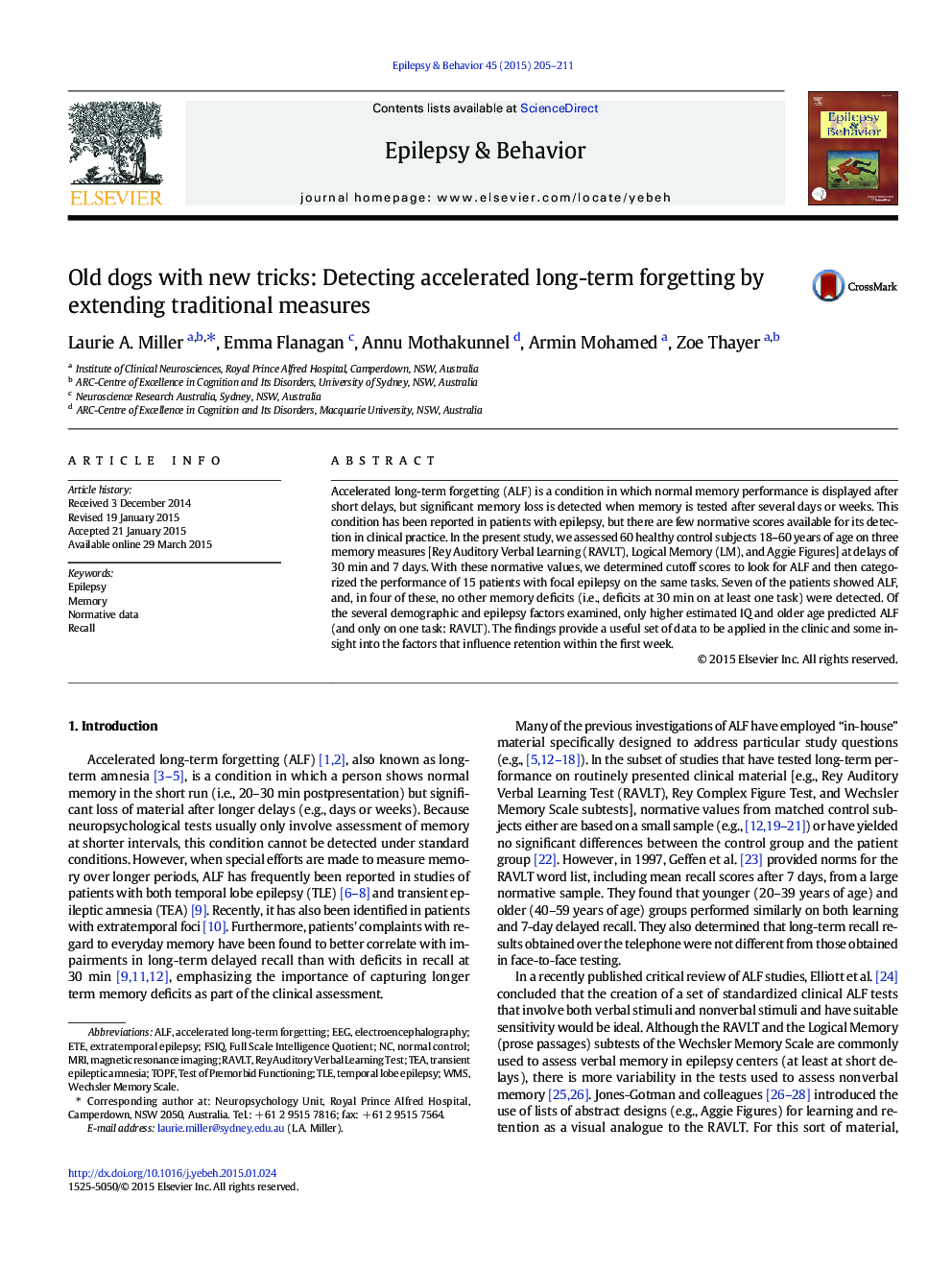| Article ID | Journal | Published Year | Pages | File Type |
|---|---|---|---|---|
| 6011286 | Epilepsy & Behavior | 2015 | 7 Pages |
â¢Normative data are provided for three tests to facilitate the detection of ALF.â¢Sex and education level influenced delayed recall performance.â¢ALF is common in patients with epilepsy and is not dependent on hippocampal lesion.â¢Higher IQ and older age are predictors of ALF.
Accelerated long-term forgetting (ALF) is a condition in which normal memory performance is displayed after short delays, but significant memory loss is detected when memory is tested after several days or weeks. This condition has been reported in patients with epilepsy, but there are few normative scores available for its detection in clinical practice. In the present study, we assessed 60 healthy control subjects 18-60Â years of age on three memory measures [Rey Auditory Verbal Learning (RAVLT), Logical Memory (LM), and Aggie Figures] at delays of 30Â min and 7Â days. With these normative values, we determined cutoff scores to look for ALF and then categorized the performance of 15 patients with focal epilepsy on the same tasks. Seven of the patients showed ALF, and, in four of these, no other memory deficits (i.e., deficits at 30Â min on at least one task) were detected. Of the several demographic and epilepsy factors examined, only higher estimated IQ and older age predicted ALF (and only on one task: RAVLT). The findings provide a useful set of data to be applied in the clinic and some insight into the factors that influence retention within the first week.
